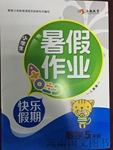题目内容
While high school does not generally encourage students to explore new aspects of life,college sets the stage for that exploration. I myself went through this______process and found something that has changed my______at college for the better:I discovered ASL-American Sign Language(美式手语).
I never felt an urge to______any sign language before.My entire family is hearing,and so are all my friends.The_______languages were enough in all my interactions(交往).Little did I know that I would discover my________for ASL.
The _______ began during my first week at college. I watched as the ASL Club ________ their translation of a song. Both the hand movements and the very _______ of communicating without speaking ______me. What I saw was completely unlike anything I had experienced in the _______.This newness just left me________more.
After that, feeling the need to ______ further, I decided to drop in on one of ASL club`s meetings. I only learned how to ______ the alphabet that day. Yet instead of being discouraged by my ______ progress,I was excited. I then made it a point to ______ those meetings and learn all I could.
The following term, I ______ an ASL class. The professor was deaf and any talking was _______. I soon realized that the silence was not unpleasant._______, if there had been any talking, it would have ______ us to learn less. Now, I appreciate the silence and the ______ way of communication it opens.
1.A. searching B. planning C. natural D. formal
2.A. progress B. experience C. major D. opinion
3.A. choose B. read C. learn D. create
4.A. official B. foreign C. body D. spoken
5.A. love B. concern C. goal D. request
6.A. meeting B. trip C. story D. task
7.A. recorded B. performed C. recited D. discussed
8.A. idea B. amount C. dream D. reason
9.A. disturbed B. supported C. embarrassed D. attracted
10.A. end B. past C. course D. distance
11.A. showing B. acting C. saying D. wanting
12.A. exercise B. explore C. express D. explain
13.A. print B. write C. sign D. count
14.A. slow B. steady C. normal D. obvious
15.A. chair B. sponsor C. attend D. organize
16.A. missed B. passed C. gave up D. registered for
17.A. prohibited B. welcomed C. ignored D. repeated
18.A. Lastly B. Thus C. Instead D. However
19.A. required B. caused C. allowed D. expected
20.A. easy B. popular C. quick D. new
 永乾教育寒假作业快乐假期延边人民出版社系列答案
永乾教育寒假作业快乐假期延边人民出版社系列答案

 nd relatives. When we were leaving I thought about all the places I was going to see—the strange and magical places I had known only from books and pictures. The country I was leaving and never to come back was hardly in my head then.
nd relatives. When we were leaving I thought about all the places I was going to see—the strange and magical places I had known only from books and pictures. The country I was leaving and never to come back was hardly in my head then.